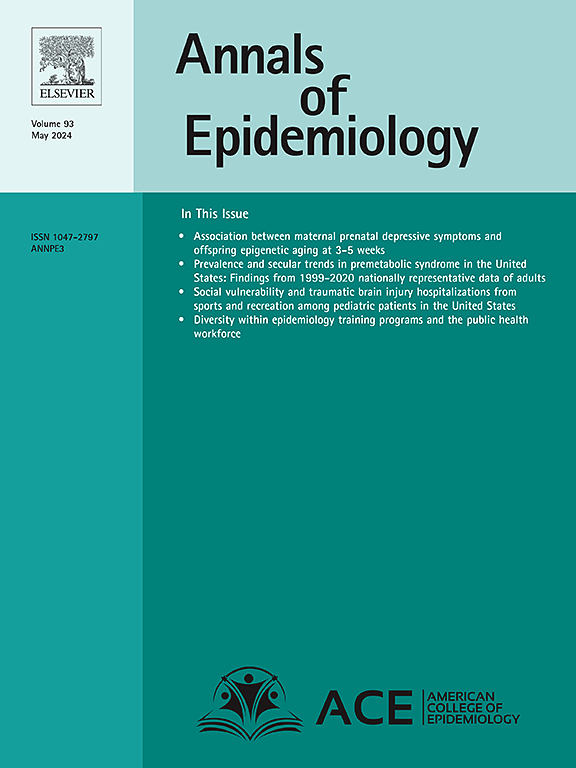Psychological distress among stroke survivors in the US: An analysis of the National Health Interview Survey
IF 3
3区 医学
Q1 PUBLIC, ENVIRONMENTAL & OCCUPATIONAL HEALTH
引用次数: 0
Abstract
Purpose
We investigated the association between stroke diagnosis and psychological distress among adults in the United States.
Methods
This cross-sectional study utilized data from the 2021 National Health Interview Survey, including adults aged 18 years or older. The exposure variable was self-reported stroke diagnosis (yes/no). Propensity score matching (1:1) was performed to create a cohort of 947 stroke survivors and 947 controls. The outcome variable was psychological distress, assessed using the six-item Kessler Psychological Distress Scale and classified as none/low, moderate, or severe. Weighted multinomial logistic regression models were used to examine the associations between stroke diagnosis and psychological distress.
Results
A total of 1894 respondents were included in the study, 19.3 % and 6.4 % experienced moderate and severe psychological distress, respectively. Respondents who experienced a stroke diagnosis had more than twice the odds of experiencing moderate distress (aORmoderate=2.16, 95 % CI: 1.59–2.93) and more than three times the odds of severe distress (aORsevere=3.12, 95 % CI: 1.76–5.49) compared to respondents without stroke diagnosis.
Conclusion
This study addresses an important gap in understanding the emotional and psychological burden among stroke survivors. Future studies should focus on addressing psychological distress in stroke survivors to assess impact on quality of life and outcomes.
美国中风幸存者的心理困扰:国家健康访谈调查分析
目的研究美国成人脑卒中诊断与心理困扰之间的关系。方法:本横断面研究利用了2021年全国健康访谈调查的数据,包括18岁或以上的成年人。暴露变量是自我报告的卒中诊断(是/否)。进行倾向评分匹配(1:1),建立947名中风幸存者和947名对照者的队列。结果变量是心理困扰,使用六项凯斯勒心理困扰量表进行评估,并分为无/低、中等和严重。采用加权多项逻辑回归模型检验脑卒中诊断与心理困扰之间的关系。结果共纳入调查对象1894人,分别有19.3% %和6.4 %存在中度和重度心理困扰。与没有中风诊断的受访者相比,经历过中风诊断的受访者经历中度痛苦的几率超过两倍(ormoderate =2.16, 95 % CI: 1.59-2.93),严重痛苦的几率超过三倍(orsevere =3.12, 95 % CI: 1.76-5.49)。结论本研究填补了对脑卒中幸存者情绪和心理负担理解的重要空白。未来的研究应侧重于解决脑卒中幸存者的心理困扰,以评估其对生活质量和预后的影响。
本文章由计算机程序翻译,如有差异,请以英文原文为准。
求助全文
约1分钟内获得全文
求助全文
来源期刊

Annals of Epidemiology
医学-公共卫生、环境卫生与职业卫生
CiteScore
7.40
自引率
1.80%
发文量
207
审稿时长
59 days
期刊介绍:
The journal emphasizes the application of epidemiologic methods to issues that affect the distribution and determinants of human illness in diverse contexts. Its primary focus is on chronic and acute conditions of diverse etiologies and of major importance to clinical medicine, public health, and health care delivery.
 求助内容:
求助内容: 应助结果提醒方式:
应助结果提醒方式:


